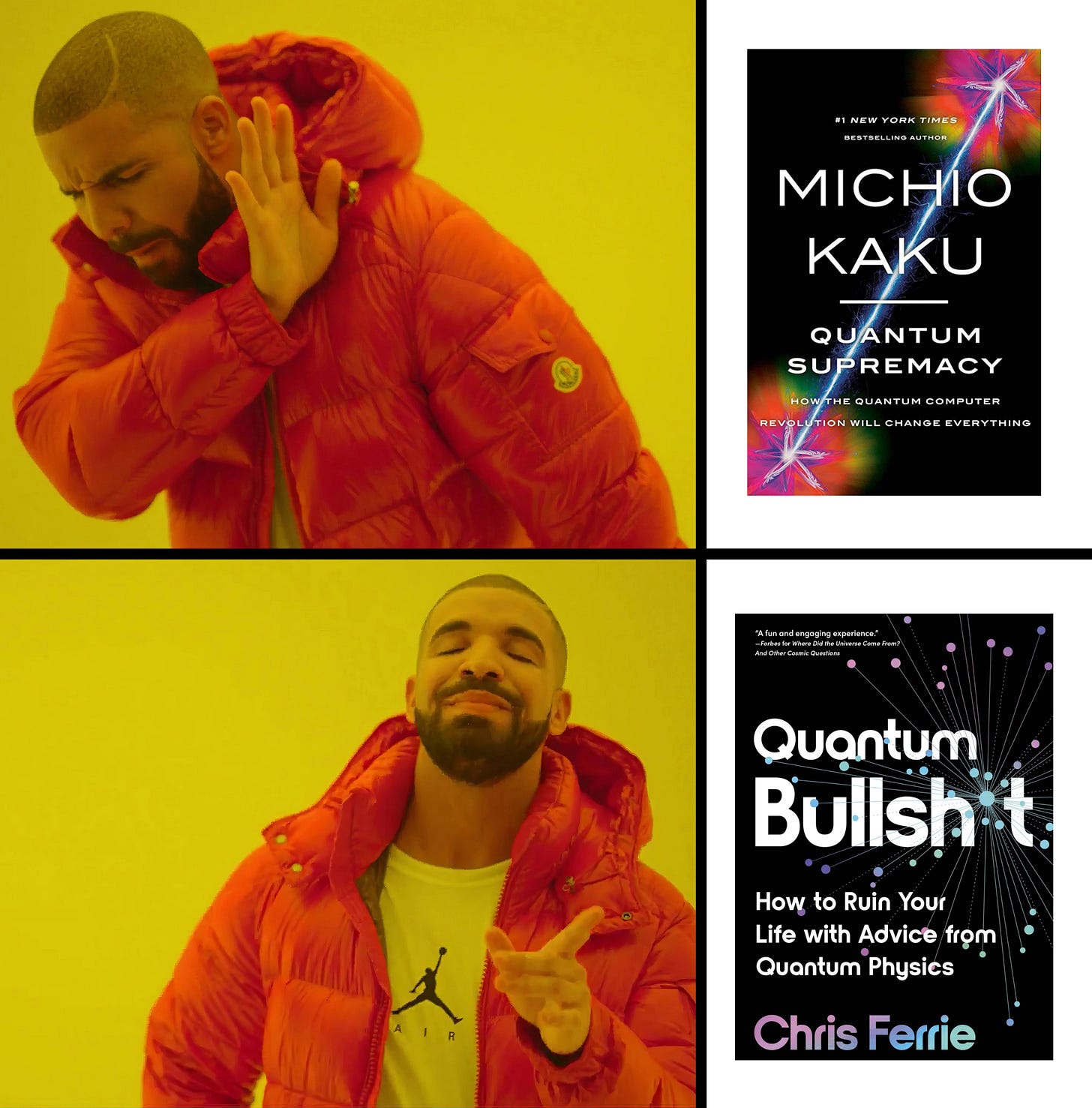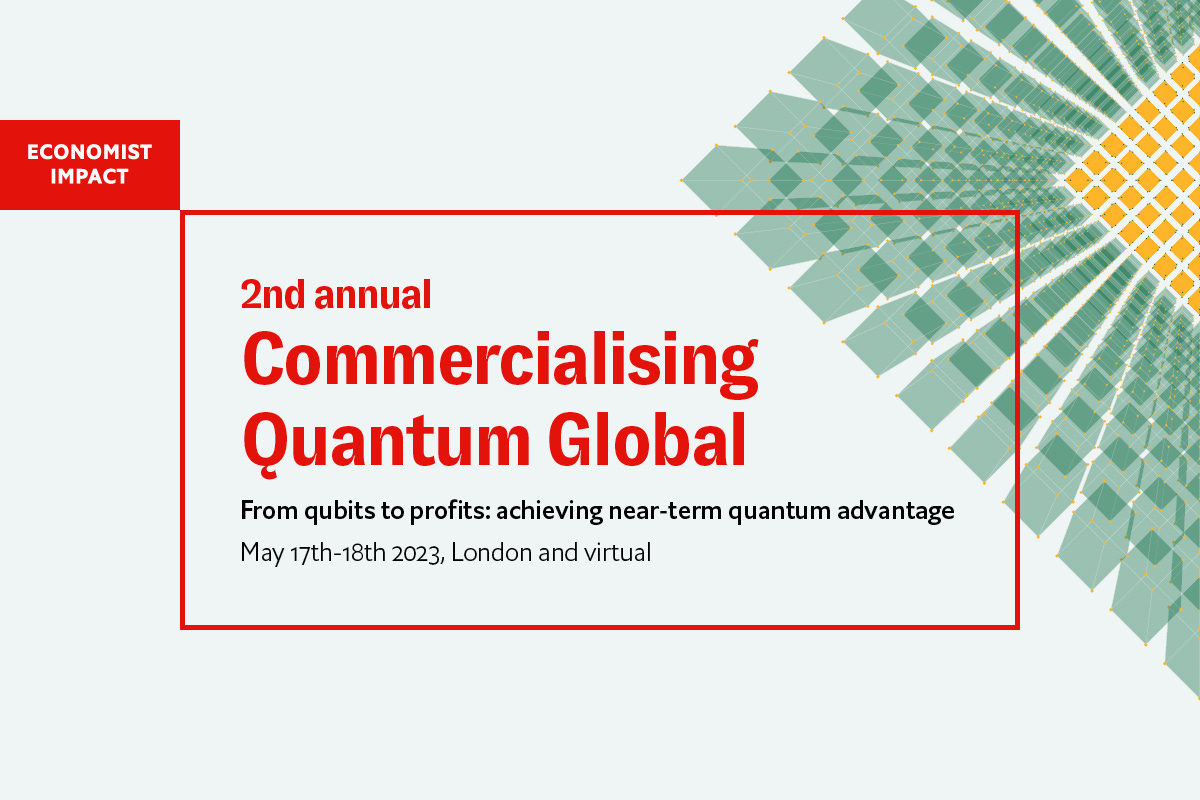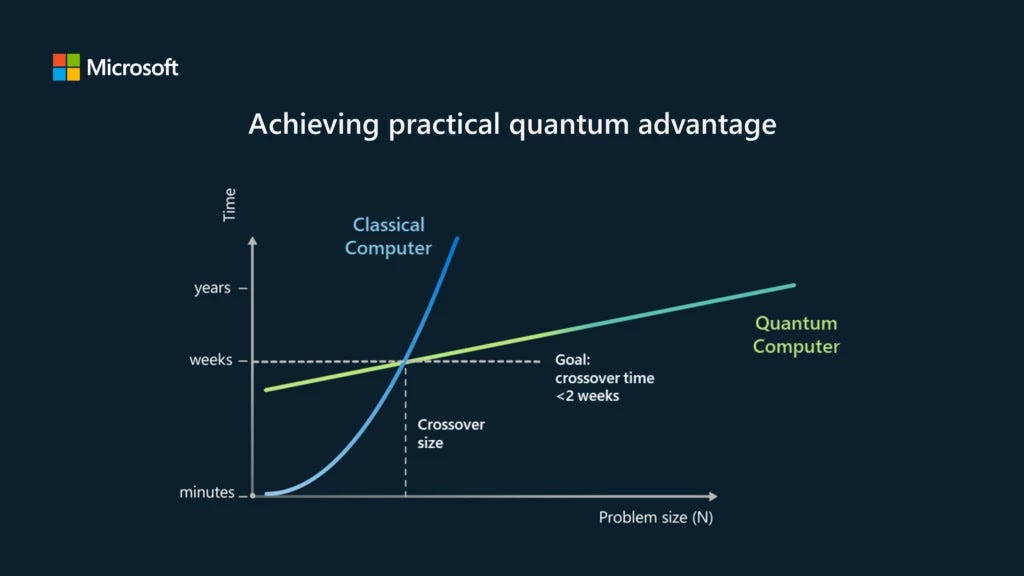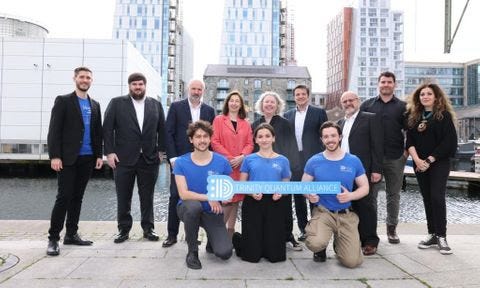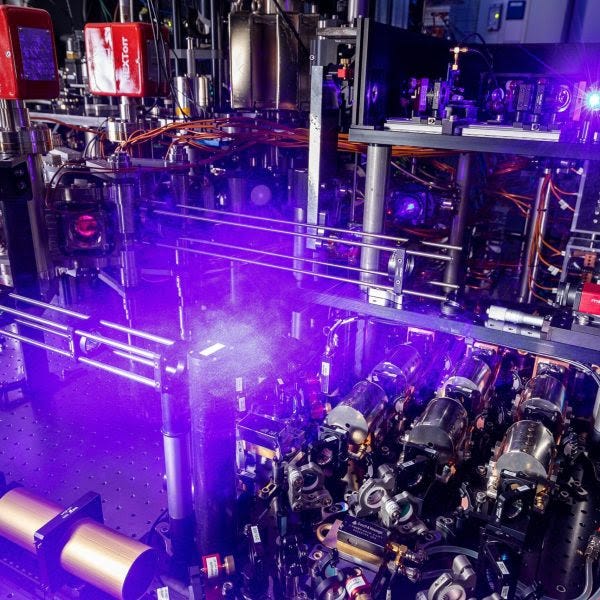The Week in Quantum Computing - May 8th
Issue #137
The Week in Quantum Computing. Brought to you by Sergio Gago (@piratecto).
Quick Recap
A great article by Michal on quantum resource estimation, one of the most important topics for corporates playing Q. UNSW Sydney researchers are on the "quantum-calling" as they develop a chip-scale method using OLEDs to transform smartphones into portable quantum sensors. QuEra Computing is "neutralizing" (pun intended) the competition with its collaboration with Harvard and Innsbruck Universities, unveiling a novel method for optimization calculations on neutral-atom machines. Can Quantum Computers find best gate for connecting flights at airports, making sure that quantum computers don't "miss their connection" in the process? (spoiler alert: maybe, but not necessarily better than classical algorithms).
Graphene-based quantum circuits are getting an "atomic makeover" with ultra-narrow graphene strips connected by flexible "bridges" to fine-tune electronic properties. Quantum computing received a reality check when a single Nvidia GPU "sped past the speed limit" of a quantum computer, outperforming it in certain tasks. Australia is hopping into the quantum game with its ambitious goal of building the first complete quantum computer, backed by a $1 billion investment. The Trinity Quantum Alliance launched this week in Ireland. Planqc has been awarded a 29 million euro contract to build and install a scalable neutral-atom quantum computer.
And now, the elephant in the room…This week featurin Michio!
(Meme courtesy of @DulwichQuantum)
MichioKaku: "Quantum computers can act as a fact checker on ChatGPT."
JoeRogan: "It's going to be able to discern what's real and what's not real?"
MichioKaku: "Yes, and even gradations of what's true. It can give you detailed understanding of what is partially correct."
I won’t even link the link to the podcast. But I simply won’t recommend that book full of quantum falacies that definetely don’t help neither the industry or academia.
Next Events
Commercialising Quantum Global 2023
Under the stewardship of editors from The Economist, at the 2nd annual Commercialising Quantum Global, we will discuss how organisations can get the most out of quantum. The two-day agenda will cover the promise, the perils, the applications, the limitations, the hype and the reality of quantum.
Commercialising Quantum Global 2023 will help senior business leaders to understand if and when they should adopt quantum technology. Offering nuanced perspectives and experiences, our speakers will help to demystify quantum and assess the benefits of investing in the technology. Join us to gain the knowledge and tools to benefit from this fundamental new technology.
Register >> https://bit.ly/3LdtGGp
Paper: Quantum Computing - A CRCPress Freebook
Quantum Pirates readers can download the 122-page freebook, compiled by CRC Press, a global publisher in science, technology, engineering, mathematics and medicine. It covers important concepts in quantum cryptography, quantum algorithms, quantum gates and circuits, and other advanced applications, including quantum teleportation, quantum games, and quantum chaos.
Link to download: https://quantumbusinessnews.tradepub.com/c/pubRD.mpl?secure=1&sr=pp&_t=pp:&qf=w_crcp01&ch=quantumpirates
The Week in Quantum Computing
Perfect Quantum Resource Estimation Software
What is QRE and why is it hard? Let’s start by briefly explaining what do we mean by QRE? Let’s say you want to know how long it will take to run an algorithm which solves a certain problem on a quantum computer. I’ll start by making a horrible oversimplification, which sweeps under a rug A TON of problems – you already have a quantum circuit that you want to run on your quantum computer. What to do about it? Well, since we need to account for error correction overhead, this is not as simple as calculating the depth of the circuit and then multiplying it by gate time. You need to understand how this circuit would be implemented on a real quantum computer, which might require the following reasoning (in the Q&A format):
Link: https://ift.tt/smwL9bu
May 01, 2023 at 04:31PM
Turning Your Smartphone into a Quantum Sensor: The Power of OLEDs
UNSW Sydney researchers have developed a chip-scale method using OLEDs to image magnetic fields, potentially transforming smartphones into portable quantum sensors. The technique is more scalable and doesn’t require laser input, making the device smaller and mass-producible.
Link: https://ift.tt/EUVSfzd
May 01, 2023 at 04:31PM
Encoding Breakthrough Unlocks New Potential in Neutral-Atom Quantum Computing
QuEra Computing, creator of the world’s first neutral-atom quantum computer named Aquila, in collaboration with researchers from Harvard and Innsbruck Universities, has revealed a novel method for performing a broader range of optimization calculations on neutral-atom machines.
Link: https://ift.tt/eTdLkV7
May 01, 2023 at 10:32PM
How a quantum computer tackles a surprisingly difficult airport problem
A group of researchers working with IBM have been crafting and testing special algorithms for specific problems that work with quantum circuits. That means the broad category of optimization tasks becomes a more specific problem, like finding the best gate to put connecting flights in at an airport.
Link: https://ift.tt/D78wjlC
May 01, 2023 at 11:31PM
Engineering graphene-based quantum circuits with atomic precision
The authors of this study synthesized a new nanoporous graphene structure by connecting ultra-narrow graphene strips, known as "nanoribbons", by means of flexible "bridges" made of phenylene moieties (which are portions of larger molecules).
By modifying in a continuous way the architecture and angle of these bridges, the scientists can control the quantum connectivity between the nanoribbon channels and, ultimately, fine-tune the electronic properties of the graphene nanoarchitecture. The tunability could also be controlled by external stimuli, such as strain or electric fields, providing opportunities for different applications.
Link: https://ift.tt/6FZ9rL5
May 02, 2023 at 11:49PM
via Pocket
Single Nvidia GPU speeds past the physics-straining might of a quantum computer
A group of researchers from Microsoft, AWS, and the Scalable Parallel Computing Laboratory in Zurich have offered a harsh reality check to those hyping the world altering potential of quantum computers, by finding that off-the-shelf GPUs can sometimes do better than machines from the frontiers of physics […] For a quantum system to be worthwhile, it needs to be able to perform a task faster than a conventional system, and to test this, the team pitted a hypothetical quantum system with 10,000 error-correcting qubits, or about a million physical qubits, against a classical computer equipped with a single Nvidia A100 GPU.
Link: https://ift.tt/3XR1Jck
May 03, 2023 at 03:30PM
Quantum computing could break the internet. This is how
For the moment, quantum computers, which exploit the spooky physics of subatomic particles, remain too unstable to perform sophisticated operations for long. IBM’s Osprey computer, thought to be the most powerful quantum computer yet developed, only has 433 qubits (or quantum bits) when most computer scientists consider it would take 1mn to realise the technology’s potential. That may still be a decade away.
Link: https://ift.tt/Xz8tZnN
May 03, 2023 at 04:30PM
Quantum Advantage: Hope and Hype
The promise of quantum computing at scale is real. It will solve some of the hardest challenges facing humanity. However, it will not solve every challenge. There is an ever-growing list of applications being explored for quantum computing today ranging from logistics, cosmology and financial market prediction to carbon capture, big data analysis, biochemistry, and many more. It’s clear that business, academic, and government leaders are turning to our industry with great hope. However, such optimism needs to be measured. The areas where quantum will have its biggest impact are coming more clearly into focus. The fundamentals of quantum physics govern which problems can benefit from the capabilities of quantum systems. Specifically, finding algorithms that present a significant advantage for quantum systems to justify their additional cost is the first hurdle. In addition, problems cannot rely on massive quantities of data, as getting data into and out of quantum systems presents a major bottleneck.
Link: https://ift.tt/k9ictr4
May 04, 2023 at 03:31AM
Australia sets ‘ambitious goal’ to build first complete quantum computer
The federal government is backing the ambition in its National Quantum Strategy, to be announced in Canberra on Wednesday, with up to $1 billion set aside from the National Reconstruction Fund for investing in critical technologies such as quantum.
Link: https://ift.tt/1ktg2MY
May 04, 2023 at 09:30AM
Paper: Blueprint of a Molecular Spin Quantum Processor
The implementation of a universal quantum processor still poses fundamental issues related to error mitigation and correction, which demand to investigate also platforms and computing schemes alternative to the main stream. A possibility is offered by employing multi-level logical units (qudits), naturally provided by molecular spins. Here we present the blueprint of a Molecular Spin Quantum Processor consisting of single Molecular Nanomagnets, acting as qudits, placed within superconducting resonators adapted to the size and interactions of these molecules to achieve a strong single spin to photon coupling. We show how to implement a universal set of gates in such a platform and to readout the final qudit state. Single-qudit unitaries (potentially embedding multiple qubits) are implemented by fast classical drives, while a novel scheme is introduced to obtain two-qubit gates via resonant photon exchange. The latter is compared to the dispersive approach, finding in general a significant improvement. The performance of the platform is assessed by realistic numerical simulations of gate sequences, such as Deutsch-Josza and quantum simulation algorithms. The very good results demonstrate the feasibility of the molecular route towards a universal quantum processor.
Link: https://ift.tt/hZgDW4P
May 04, 2023 at 10:30AM
Australia’s first National Quantum Strategy
The Australian Government has released our first National Quantum Strategy. The strategy sets a long-term vision for Australia to take advantage of the opportunities that quantum technologies present.
Australia has been at the forefront of quantum science and technology for more than 2 decades. We have world-class research institutions, talented scientists and engineers and a vibrant start-up ecosystem. The strategy outlines how we will seize our quantum future and remain a global leader.
Link: https://ift.tt/ZCK8kLh
May 05, 2023 at 02:30AM
USC president launches $1B initiative for computing including AI, advanced computation and quantum computing
With an aggressive recruitment and fundraising effort, USC President Carol L. Folt launches the single largest comprehensive academic initiative in the university’s history: Frontiers of Computing.
Link: https://ift.tt/a0FRpgn
May 05, 2023 at 04:30PM
Quantum computing: What are the data storage challenges?
ne of the core challenges of quantum computers is that their storage systems are unsuitable for long-term storage due to quantum decoherence, the effect of which can build up over time. Decoherence occurs when quantum computing data is brought into existing data storage frameworks and causes qubits to lose their quantum status, resulting in corrupted data and data loss.
“Quantum mechanical bits can’t be stored for long times as they tend to decay and collapse after a while,” says Weides. “Depending on the technology used, they can collapse within seconds, but the best ones are in a minute. You don’t really achieve 10 years of storage. Maybe in two decades we might get there, but it’s not required either.”
Link: https://ift.tt/M1tXxnh
May 05, 2023 at 06:31PM
Trinity Quantum Alliance established to create vibrant quantum ecosystem in Ireland
Today saw the launch of the Trinity Quantum Alliance, a collaboration that brings together experts from research and industry, and which includes a new customised space in Trinity East for innovative projects in quantum science and technology, simulation, education and computation.
Link: https://ift.tt/8UQGWLa
May 05, 2023 at 10:30PM
Tutorial: Estimate the resources of a quantum chemistry problem
This tutorial shows how to estimate the physical resources required to calculate the energy of a Hamiltonian to chemical accuracy of 1 mHa using the Azure Quantum Resource Estimator. The quantum algorithm that calculates the energy of the Hamiltonian is based on double-factorized qubitization.
Link: https://ift.tt/dcrv6Xx
May 05, 2023 at 11:30PM
planqc awarded 29 Million Euro Contract From DLR to Build And Install Scalable Neutral-Atom Quantum Computer
The German Aerospace Center (DLR) selected planqc to develop a digital neutral-atom-based quantum computing hardware and software platform.
Link: https://ift.tt/0hO2GMy
May 06, 2023 at 04:31AM


